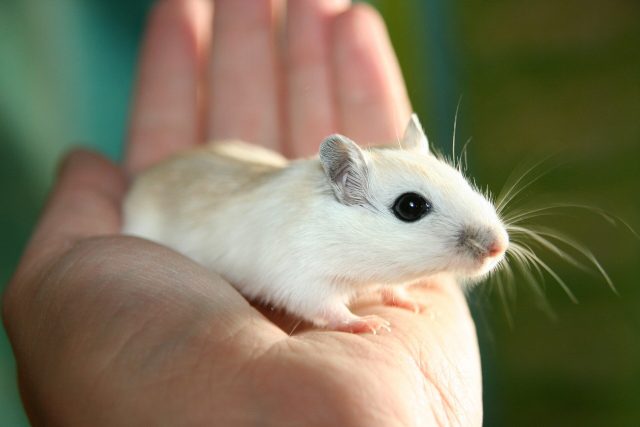A common food additive, recently banned in France but allowed in the U.S. and many other countries, was found to significantly alter gut microbiota in mice, causing inflammation in the colon and changes in protein expression in the liver, according to research led by a University of Massachusetts Amherst food scientist.
“I think our results have a lot of implications in the food industry and on human health and nutrition,” says lead author Hang Xiao, professor and Clydesdale Scholar of Food Science. “The study confirmed a strong linkage between foodborne titanium dioxide nanoparticles (TiO2 NPs) and adverse health effects.”
Along with colleagues at UMass Amherst and in China, Xiao published the research in Small, a weekly, peer-reviewed, interdisciplinary journal that covers nanotechnology.
Gut microbiota, which refers to the diverse and complex community of microorganisms in the gut, plays a vital role in human health. An imbalance of gut microbiota has been associated with a range of health issues, including inflammatory bowel disease, obesity and cardiovascular disease.
Human exposure to foodborne TiO2 NPs comes primarily from a food additive known as E171, which is made up of different-size particles of TiO2, including one-third or more that are nanoscale. E171, which makes products look whiter and more opaque, is found in such food as desserts, candy, beverages and gum. E171 exposure is two to four times higher in U.S. children than in adults, Xiao points out that one study found.
Find your dream job in the space industry. Check our Space Job Board »
Smaller than 100 nanometers, foodborne nanoscale particles may have unique physiological properties that cause concern. “The bigger particles won’t be absorbed easily, but the smaller ones could get into the tissues and accumulate somewhere,” Xiao says.
In their study, Xiao and his team fed either E171 or TiO2 NPs to two populations of mice as part of their daily diet. One population was fed a high-fat diet similar to that of many Americans, two-thirds of whom are obese or overweight; the other group of mice was fed a low-fat diet. The mice fed a high-fat diet eventually became obese, while the mice on the low-fat diet did not.
“In both the non-obese mice and obese mice, the gut microbiota was disturbed by both E171 and TiO2 NPs,” Xiao says. “The nanosized particles caused more negative changes in both groups of mice.” Moreover, the obese mice were more susceptible to the adverse effects of TiO2 NPs, causing more damage in obese mice than in non-obese ones.
The researchers found TiO2 NPs decreased cecal levels of short-chain fatty acids, which are essential for colon health, and increased pro-inflammatory immune cells and cytokines in the colon, indicating an inflammatory state.
To evaluate the direct health impact of gut microbiota disrupted by TiO2 NP, Xiao and colleagues conducted a fecal transplant study. They gave mice antibiotics to clear out their original gut microbiota and then transplanted fecal bacteria from the TiO2 NP-treated mice to the antibiotic-treated mice. “The results support our hypothesis that including TiO2 NPs in the diet disrupts the homeostasis of the gut microbiota,” Xiao says, “which in turn leads to colonic inflammation in the mice.”
The study also measured levels of TiO2 in human stool samples, finding a wide range. Xiao says further research is needed to determine the health effects of long-term—such as life-long and multigenerational—exposure to TiO2 NPs.
Provided by: University of Massachusetts Amherst
More information: Xiaoqiong Cao et al. Foodborne Titanium Dioxide Nanoparticles Induce Stronger Adverse Effects in Obese Mice than Non‐Obese Mice: Gut Microbiota Dysbiosis, Colonic Inflammation, and Proteome Alterations. Small (2020). DOI: 10.1002/smll.202001858
Image Credit: CC0 Public Domain
